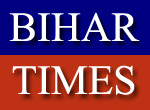The only occasion when the prime minister perked up during his otherwise somewhat insipid press conference was when he castigated Narendra Modi in uncharacteristically abrasive terms, thereby giving the latter a taste of his own bitter medicine.
While doing so, Manmohan Singh virtually recalled the description by media personnel of the Gujarat chief minister as a "mass murderer" for his role during the 2002 riots. The prime minister's biting observation - that if being "strong" meant "presiding over the mass massacre of innocent citizens", it wasn't the kind of strength which he wanted - was yet another example of his combativeness.
The context of Manmohan Singh's comment was a question on the perception of him as a weak PM. It is evident that it is an image which disturbs him more than anything else.
It may be recalled that when the Bharatiya Janata Party (BJP) leader, L.K. Advani, used to raise this question of weakness before the 2009 general election, the prime minister responded by saying that he was not someone who cowered in a corner, as Advani did, while the saffron cadres demolished a protected monument. Following the jeering criticism, Advani had refrained from levelling the accusation again.
Now, faced with the latest invective against its poster-boy, the BJP rolled out its big guns - Arun Jaitley, Rajnath Singh, Ravi Shankar Prasad and others - to return the prime minister's fire.
Jaitley's view is that Manmohan Singh lowered the dignity of the prime minister's office by saying that it will be "disastrous" for the country if Modi becomes the prime minister. The BJP claims that such accusations are pointless when Modi has been exonerated by the judiciary.
But, what the BJP misses is that the war of words is not a legal, but a political skirmish, and that Modi may have hidden his tracks well enough to mislead the courts. In any event, the Congress appears to have decided to reiterate its "maut ki saudagar" (merchant of death) taunt which it directed at Modi before the 2007 Gujarat assembly elections.
What the latest exchanges have done is to liven up the poll campaign because the belief till now has been that the Congress is wary of reviving the riots issue lest it consolidates the Hindu vote behind Modi. However, it is possible that the erosion which he faces of his support base by the Aam Admi Party (AAP) has persuaded the Congress to take on the BJP's prime ministerial candidate more aggressively.
Apart from the prime minister's unusual show of spirit, he stuck to the beaten path with anodyne, even evasive, answers. His claim, for instance, that it was the government's first term between 2004 and 2009 which saw most of the corruption cases was erroneous considering that the former telecom minister Andimuthu Raja's arrest and the Commonwealth Games scam erupted from 2010 onwards.
Similarly, his assertion that everything was being done to unearth the factors behind so-called Coalgate skirted the truth considering that a minister had to resign following his overseeing of the Central Bureau of Investigation's (CBI) inquiry report on the coal block allocations for mining.
Moreover, the prime minister's references to global factors for the economic downturn till he finally conceded that there were also domestic reasons amounted to being economical with the truth. Even then, his identification of these reasons as infrastructure bottlenecks and the slowness of environmental clearances sidestepped the allegation that the existence of dual centres of authority was responsible for the policy logjam.
Instead, he claimed that the system of dualism worked "exceedingly well". The same belief that his tenure was a reasonably successful one was evident in his claim that history will be "kinder" to him than his contemporaries.
If anything, assertions of this nature underline the typical knee-jerk reactions of a ruling party that all is well and that the government cannot be blamed too much for any slippages that may have occurred, ranging from corruption to inflation.
So, the report card that he read out predictably highlighted the governments' achievements, including a reduction in poverty and the rate of unemployment. But, the prime minister was unwilling to rate the government's performance on a scale of 10 although it was pointed out to him that he had earlier given his administration a score of seven.
If the sharp dig at Modi had not been the high point of the press conference, then the prime minister's virtual announcement of his retirement would have made the headlines. Considering that he had left his options open for another term while speaking to the media while returning from South Africa at the end of the BRICS summit in March, it is obvious that something has happened in the intervening period to make him change his mind.
It is possible that the continuing taint of sleaze and high prices have persuaded the prime minister that his time is up. His praise, therefore, of Rahul Gandhi's "outstanding credentials" paves the way for the next generation in the Congress.
|

